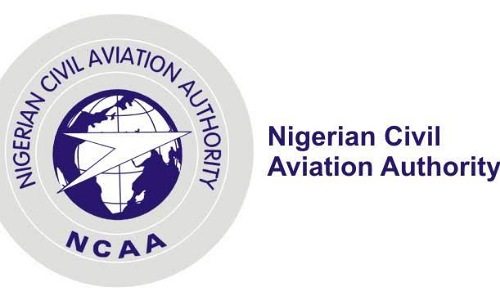Aviation
International travels disrupted as Air France, Lufthansa pilots commence strike

JOHANESBURG–Air France (AF) is facing its most disruptive pilot strike since 1998 and Deutsche Lufthansa AG (LHA) is bracing for another walkout tomorrow as both carriers confront worker resistance to sweeping overhauls aimed at cutting costs.
At Air France, a unit of Air France-KLM Group, 60 percent of pilots walked out today over plans to expand low-cost operations with flight crews paid less than at the main carrier. At Lufthansa, which has suffered a series of one- and three-day strikes over retirement benefits this year, pilots flying long-haul aircraft from Frankfurt will halt work tomorrow.
The strikes at Europe’s two biggest airlines threaten to undermine efforts by management to bring costs in line with discount competitors including Ryanair Holdings Plc (RYA), which has just bought new aircraft that it says will help cut fares even more. Both carriers have lost money on short-haul operations for years and are moving more business to cheaper subsidiaries, a step contested by employees concerned about their future.
“Short-haul operations of both airlines are in quite a lot of trouble and they’re having to cut costs quickly,” said Robin Byde, an analyst at Cantor Fitzgerald.
Air France today expects to cancel 52 percent of services on the first day of an action due to run through Sept. 22, and 60 percent may remain grounded tomorrow. The dispute will cost 20 million euros ($26 million) a day in revenue, it said.
Essential Trips
“We’re telling people who don’t absolutely have to travel to postpone their trip,” Air France Head of Operations Catherine Jude said yesterday in a briefing at the carrier’s Paris Charles de Gaulle airport base.
Pilots are staging the walkout as Air France-KLM Chief Executive Officer Alexandre de Juniac seeks to end decades of short-haul losses. Former Dutch charter unit Transavia will be further expanded into France with a fleet that could double in size, the company said last week, confirming plans that unions say will prompt job losses and pay cuts at the main airline.
While Lufthansa’s pilots formally say the the strikes only target retirement benefits, the number of contested points has increased, including higher wages and the carrier’s plans to set up low-cost operations also on long-haul routes.
Lufthansa pilots in April staged a three-day walkout, their first since 2010, forcing the airline to cancel 3,900 flights and trimming profit this year by 60 million euros, with bookings taking about six weeks to recover.
No Substitution
Since then, there was a walkout at the company’s Germanwings low-cost arm on Aug. 29 and at Lufthansa’s main Frankfurt hub on Sept. 5. Each lasted six hours, causing a total of 334 services to be canceled. Lufthansa also canceled about 140 flights to and from Munich on Sept. 10 when the pilots walked out at the carrier’s second German hub. So for the year, the total number of flights canceled is 4,400 flights.
For the French carrier, this week’s action could have the biggest effect on travel since an eight-day strike 16 years ago over the French government taking the airline public. That dispute involved 3,000 pilots and forced 75 percent of flights to be scrapped at a cost equivalent to $166 million now.
While Air France in more recent, smaller strikes has limited the cancellations mainly to short flights, the ability to cope with the walkout is limited this time, and pilots “who fly one aircraft can’t be substituted for another,” Air France’s Jude said, declining to give a breakdown of likely long-haul and short-haul cancellations.
Discount Expansion
Air France’s SNPL union wants pilots across the company to be paid the same wages and to have the same working conditions. Jean-Louis Barber, the labor group’s president, said last week that it was still open to negotiating even as the strike loomed.
De Juniac said Sept. 11 that if pilots don’t accept the company’s strategy, the expansion of Transavia’s French unit may be put on hold. Flights could be added through a new Transavia Europe division that might be based elsewhere.
Strikes are among the reasons that Lufthansa gave a profit warning earlier this year, and Air France-KLM Group may well be forced to revise its own outlook, already pared downward from 2.5 billion euros in Ebitda in July, according to a note published this morning by Raymond James Euro Equities in Paris
Yet short-term hits may be necessary as companies play hardball with unions in seeking to drop costs, said Cantor Fitzgerald’s Byde.
“It’s not just about the cost base, but about market opportunities,” he said in an interview. “The future of the airlines is in question and I can’t see management backing down.”
BLOOMBERG-
Aviation
JUST IN: Emirates Airlines Set To Restore Flights To Nigeria
Emirates Airlines has announced plan to resume flight operations to Nigerian airports on October 1, 2024, after a two-year hiatus.
The news was shared by the airline on its verified X handle on Thursday.
It stated, “We’re back Nigeria! We’ll be resuming services to Lagos from 1 October 2024, and we can’t wait to offer unrivalled connectivity to Dubai and beyond to over 140 cities.”
The development was hinted at earlier by Nigeria’s Minister of Aviation and Aerospace Development, Festus Keyamo, SAN.
In a post on X on Wednesday, Keyamo disclosed that he met with the Ambassador of the United Arab Emirates (UAE) to Nigeria, Salem Saeed Al-Shamsi, in Abuja on Tuesday.
He stated that during the meeting, Al-Shamsi handed him a correspondence from Emirates Airlines confirming the flight resumption date.
The Minister wrote “Yesterday (On Tuesday), I paid a working visit to the Ambassador of the UAE to Nigeria, His Excellency, Salem Saeed Al-Shamsi at the UAE Embassy in Abuja.
“He handed me a correspondence from the Emirates Airline indicating a definite date of their resumption of flights to Nigeria. That date will be formally announced by Emirates Airlines in a matter of days.”
The announcement signifies another step taken by the Nigerian government to reinstate flight operations between Nigeria and the UAE.
In November 2023, Minister Keyamo had announced that Emirates Airlines would soon disclose the exact date of their return to Nigerian skies.
The flight suspension between the two nations had been amidst a broader diplomatic dispute, primarily concerning the Bilateral Air Services Agreement (BASA).
Visa restrictions further exacerbated the situation, impacting numerous Nigerian migrants and tourists, given the UAE’s popularity as a destination.
Recall that Emirates Airlines suspended its flights to Nigeria in 2022 due to challenges in repatriating funds trapped in the country.
Despite a meeting in September 2023 between Nigeria’s President Bola Tinubu and UAE President Mohamed bin Zayed Al Nahyan in Abu Dhabi, where there were rumors that the UAE had lifted its visa ban on Nigerian travelers, the ban still stands.
Presidential spokesman Bayo Onanuga later clarified that the UAE had not lifted the visa restrictions on Nigerians.
Aviation
JUST IN: NCAA Suspends 3 Jet Operators

The Nigerian Civil Aviation Authority (NCAA) has taken action by suspending the permits of three private jet operators due to their involvement in commercial flights.
Chris Najomo, the Acting Director General of the NCAA, issued this suspension during a briefing to all airlines on Tuesday.
Additionally, Najomo ordered a re-evaluation of all PNCF permits within a 72-hour timeframe.
The head of the NCAA stated that Festus Keyamo, the Minister of Aviation and Aerospace Development, had instructed the discontinuation of private jets’ commercial use in 2023.
Despite this directive, the operators persisted in their commercial activities.
Najomo said “Subsequently, in March 2024, the NCAA had issued a stern warning to holders of the permit for non commercial flights, PNCF, against engaging in the carriage of passenger cargo or mail for hire and reward.
“The Authority had also deployed its officials to monitor activities of private jets at terminals across the airports in Nigeria.
“As a consequence of this heightened surveillance, no fewer than three private operators have been found to be involved in violation of the annexure provision of their PNCF and Part 9114 of the Nigeria Civil Aviation Regulations 2023.
“In line with our zero tolerance for violation of regulations, the Authority has suspended the PNCF of these operators.”
Aviation
Keyamo Charges NCAT To Produce 4,203 Controllers By 2037

Minister Festus Keyamo has urged the Nigerian College of Aviation Technology in Zaria, Kaduna State, to create new solutions that can speed up the training of skilled air traffic controllers.
This call comes as Africa anticipates a need for 4,203 new air traffic controllers by the year 2037.
The minister made this statement on Wednesday during the 34th IFATAC Africa and Middle East Regional meeting in Abuja.
Addressing the gathering, the minister noted that the goal of training 4,203 new air traffic controllers aligns with the projection from the International Civil Aviation Organization (ICAO).
He further affirmed the ministry’s commitment to offering full support to NCAT, ensuring it not only meets but surpasses its mandated duties and roles.
He said “ICAO projects that by the year 2037, Africa will require 4,203 new air traffic controllers. The onus rests on the Aviation College of Aviation Technology (NCAT) to develop innovative ideas solutions to accelerate the training of new and proficient air traffic controllers.
The minister, represented by acting director Michael Chiko from Air Safety and Administration, highlighted the rapid evolution of the air traffic control profession.
He stated “The profession of air traffic control has evolved rapidly, transitioning from simple flag signalling to sophisticated technologies. This evolution facilitates management of the surging number of aircraft traversing our
skies daily.
“As a vital, indispensable component of air safety, air traffic controllers are responsible for the safe, orderly and expeditious flow of air traffic. Therefore, I am not unaware of the critical role you play and invariably, the heavy burden you bear.
“This burden is compounded by increased air traffic, workforce shortages, technological shifts; necessitating rigorous training regimes.
“More so, with the emergence of unmanned aerial vehicles, reshaping dynamics and challenging the norm, it is thus paramount to prepare for the future and indeed Nigeria like other countries must prepare for the future.” he added
During the event, Mr. Lawrence Pwajok, representing Engr. Mohammed Odunowo, the managing director of the Nigerian Airspace Management Agency (NAMA), emphasized the relevance of the 34th IFATCA Africa and Middle East Regional meeting’s theme, titled ‘Shaping the Future: Trends and Insights On ATC Training for Tomorrow’.
Pwajok highlighted the significance of this theme, especially as air traffic control commemorates 100 years since its inception.
He suggested examining the historical perspective of air traffic control, tracing its origins from Croydon airport a century ago to its present form in modern airports like Dubai, Istanbul, JFK, Charles De Gaulle, among others.
This historical comparison aims to provide insights into the potential trajectory of the future air traffic control system over the next century.
He added “It is obvious that the future air traffic management system will be characterised by extensive application of automation, digitization and artificial intelligence.”








